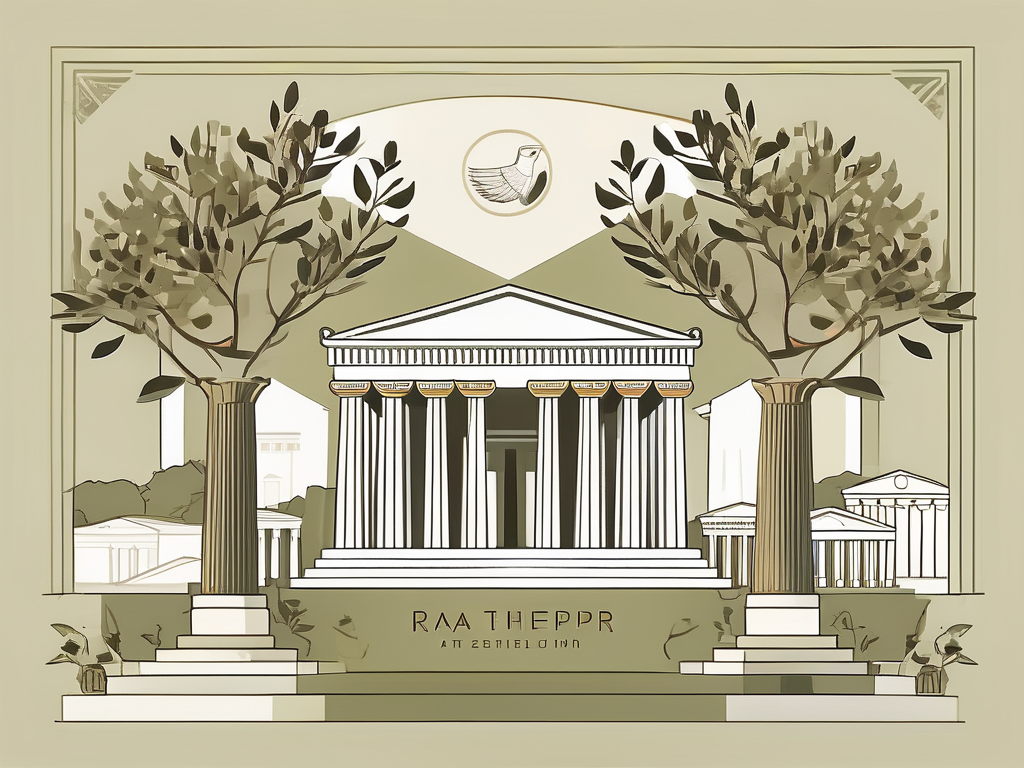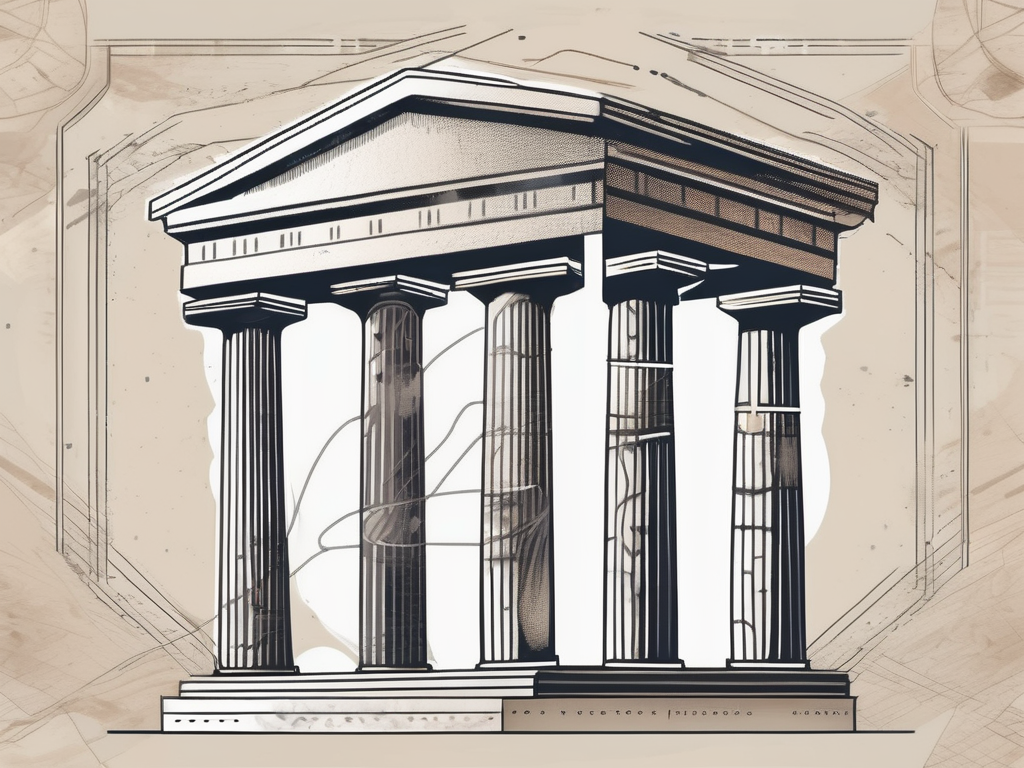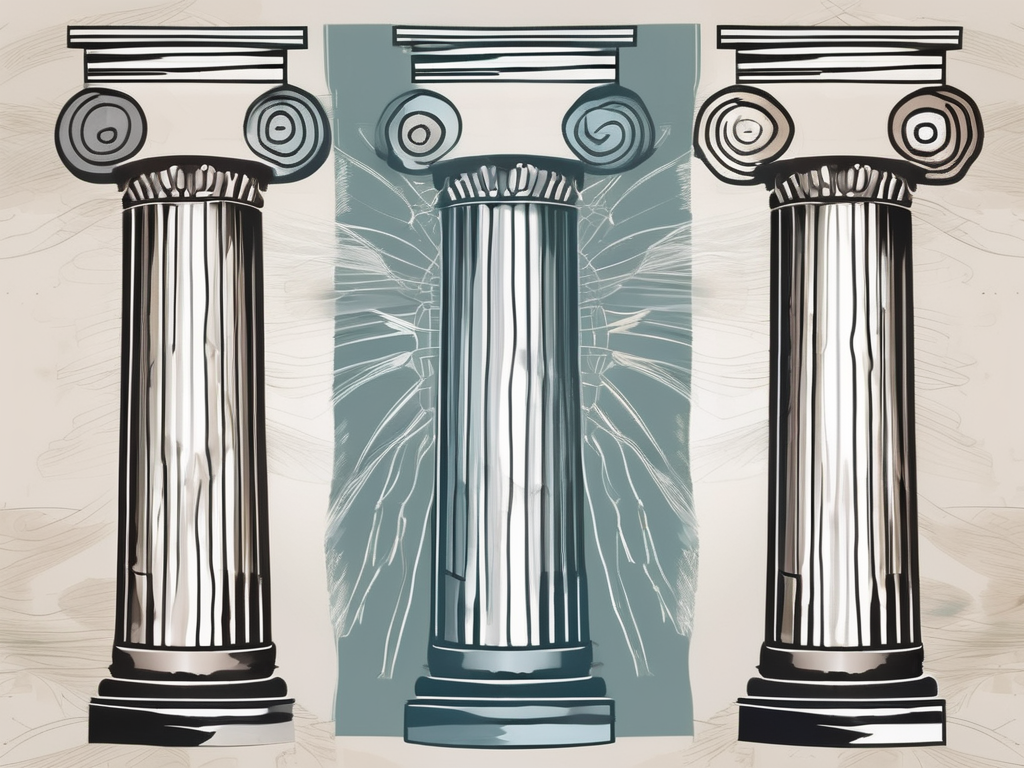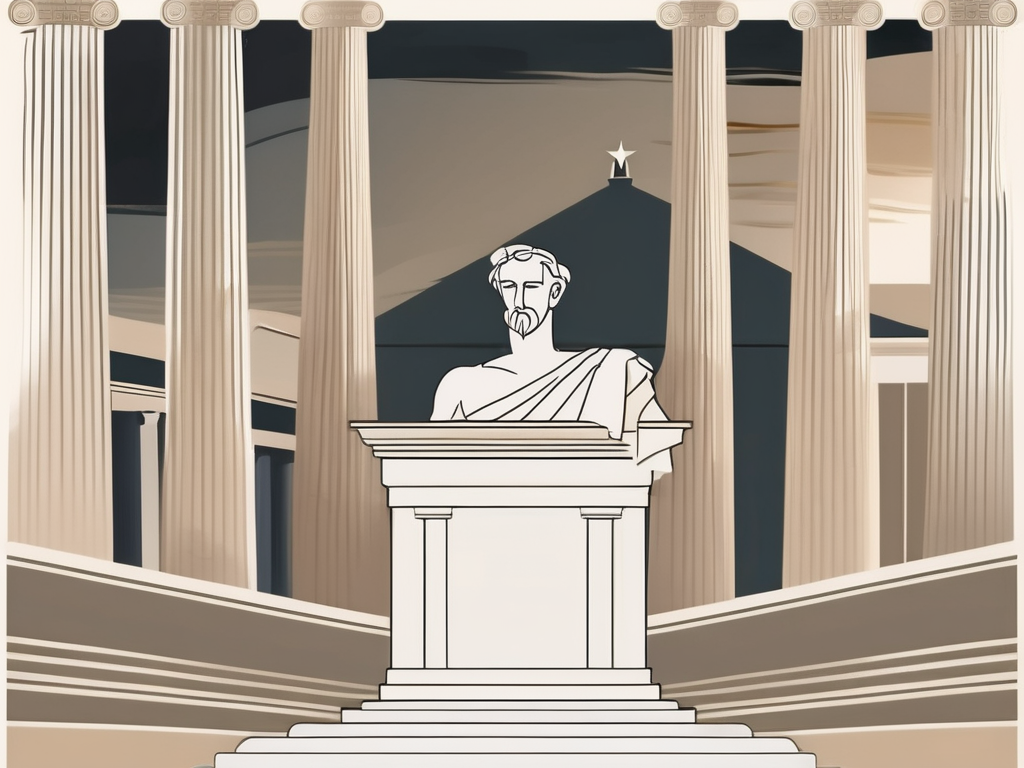Democritus, a Greek philosopher born in the 5th century BCE, is widely regarded as one of the most influential thinkers in Western philosophy. His ideas, particularly his atomic theory and ethical philosophy, continue to shape our understanding of the world today. In this article, we will explore Democritus’ life, his philosophical beliefs, his impact on later philosophers, the criticisms he faced, and his enduring legacy.
Early Life and Education of Democritus
Born in the city of Abdera, located in ancient Thrace, Democritus grew up in a wealthy and influential family. His exact date of birth and details about his childhood are scarce, but historical records suggest that he had a comfortable upbringing, which allowed him to pursue his passion for knowledge.
Birth and Childhood
Little is known about Democritus’ early life, but it is believed that he was born around 460 BCE. Growing up in a prosperous family, he had access to a vast library and was encouraged to explore various intellectual pursuits.
Democritus’ childhood was filled with curiosity and wonder. He would spend hours in his family’s library, engrossed in books on a wide range of subjects. From an early age, he showed a keen interest in the natural world and the fundamental questions of existence. His insatiable thirst for knowledge led him to constantly seek out new sources of information, eagerly absorbing everything he could find.
As a child, Democritus was known for his sharp intellect and quick wit. He would engage in lively debates with his tutors and peers, challenging conventional wisdom and offering his own unique perspectives. His inquisitive nature often led him to ask probing questions that others had never considered, sparking deep discussions and inspiring those around him.
Philosophical Education
Democritus received a comprehensive education that covered a wide range of subjects, including mathematics, physics, ethics, and metaphysics. His inquisitive nature led him to travel extensively in search of knowledge, visiting renowned centers of learning across the ancient world.
During his travels, Democritus studied under some of the greatest philosophers of his time. He spent time in Athens, where he learned from the likes of Socrates and Plato, absorbing their teachings and engaging in philosophical debates. He also traveled to Egypt, where he delved into the mysteries of ancient Egyptian civilization and studied under the renowned scholars of Alexandria.
Democritus’ philosophical education was not limited to formal instruction. He was a voracious reader, devouring the works of the great thinkers of his time and immersing himself in the philosophical traditions of various cultures. He would spend hours in deep contemplation, pondering the nature of reality, the existence of the soul, and the origins of the universe.
Throughout his education, Democritus developed a unique philosophical system that would later become known as atomism. He believed that the universe was composed of tiny, indivisible particles called atoms, which interacted with each other to form all matter. This revolutionary idea laid the foundation for modern atomic theory and had a profound impact on the development of science and philosophy.
Democritus’ Philosophical Beliefs
Democritus, an ancient Greek philosopher, developed a unique and comprehensive philosophical system that laid the foundation for several key ideas in Western philosophy. His contributions to atomic theory and ethical philosophy are particularly noteworthy and continue to shape our understanding of the world.
Atomic Theory
One of Democritus’ most groundbreaking ideas was his proposal of atomic theory. He posited that everything in the universe is composed of tiny, indivisible particles called atoms. According to Democritus, these atoms are in constant motion and combine and interact to form the physical world we perceive. This theory, although not fully understood or accepted during his time, laid the groundwork for modern physics and chemistry.
Democritus’ atomic theory challenged the prevailing belief in the existence of continuous matter. He argued that all matter is ultimately composed of discrete particles, which differ in size, shape, and arrangement. This revolutionary concept provided a new framework for understanding the nature of reality and the behavior of matter.
Furthermore, Democritus proposed that atoms are eternal and unchangeable, and that their interactions are governed by natural laws. He believed that the diversity of substances and phenomena in the world could be explained by the different arrangements and combinations of atoms. This idea laid the groundwork for the development of modern atomic theory, which has greatly advanced our understanding of the physical world.
Ethics and Morality
Demonstrating his holistic approach to philosophy, Democritus placed great emphasis on ethical conduct and the pursuit of happiness. He believed that true happiness could be achieved through a balance of virtues and the avoidance of extremes. According to Democritus, a virtuous life is one that is guided by reason, self-control, and moderation.
Democritus’ ethical teachings were deeply influenced by his atomic theory. He argued that since everything is composed of atoms, including the human mind and soul, ethical behavior should be understood as the result of atomic interactions. He believed that individuals should strive to align their actions with the natural order of the universe, promoting harmony and balance.
Furthermore, Democritus emphasized the importance of cultivating virtues such as wisdom, justice, and courage. He believed that by developing these virtues, individuals can lead a fulfilling and meaningful life. Democritus’ ethical philosophy had a profound influence on later philosophers, particularly the Epicureans, who further developed his ideas and incorporated them into their own philosophical system.
In conclusion, Democritus’ philosophical beliefs encompassed a wide range of topics, from atomic theory to ethics. His ideas on atomic theory laid the foundation for modern physics and chemistry, while his ethical teachings emphasized the importance of virtue and the pursuit of happiness. Democritus’ contributions continue to shape our understanding of the world and inspire philosophical inquiry to this day.
Influence on Later Philosophers
Democritus’ ideas found fertile ground in the minds of subsequent generations of thinkers, shaping the development of philosophical thought over the centuries.
One of the key areas where Democritus’ influence can be seen is in the school of thought known as Epicureanism. The thinkers of the Hellenistic period, particularly Epicurus and his followers, were greatly influenced by Democritus’ atomic theory and ethical philosophy. Epicurus built upon Democritus’ ideas to formulate his own teachings on the pursuit of pleasure and the avoidance of pain. He believed that the ultimate goal of life was to achieve a state of tranquility and inner peace, which could be attained through the careful cultivation of pleasure and the avoidance of unnecessary desires. This school of thought, known as Epicureanism, became popular during the Hellenistic period and continued to have a significant impact on Western philosophy for centuries to come.
In addition to its influence on ancient philosophy, Democritus’ ideas also had a profound impact on modern philosophy. Although his ideas were often ignored or overshadowed during the Middle Ages, they experienced a revival during the European Renaissance. The Renaissance thinkers, with their renewed interest in the classical world, were drawn to Democritus’ atomic theory, which offered a scientific explanation for the nature of matter and the universe. This interest in Democritus’ ideas continued into the Scientific Revolution, where scientists such as Galileo and Newton sought to understand the fundamental nature of the physical world. They built upon Democritus’ atomic theory and expanded it, laying the foundation for modern physics and our understanding of the universe.
Furthermore, Democritus’ ideas also had an impact on other areas of philosophy, such as metaphysics and epistemology. His emphasis on the existence of atoms and the void challenged the prevailing philosophical views of his time, which often relied on supernatural explanations for the workings of the world. Democritus’ materialistic worldview and his belief in the power of reason and observation to understand the natural world laid the groundwork for the development of empiricism and rationalism, two important philosophical traditions that continue to shape our understanding of knowledge and reality.
Criticisms and Controversies
Despite his contributions to philosophy, Democritus faced criticism and opposition from his contemporaries and later scholars.
Opposition from Plato
The renowned philosopher Plato vehemently opposed Democritus’ atomic theory, favoring the more metaphysical teachings of his mentor, Socrates. Plato argued that reality was based on Forms, abstract concepts that transcended the material world, and dismissed Democritus’ atomism as reductionist and lacking in depth.
Misinterpretations of His Work
Throughout history, there have been misinterpretations and misrepresentations of Democritus’ ideas. Some early scholars framed his atomic theory as a denial of the existence of gods, despite Democritus’ own spiritual beliefs. These misinterpretations hindered a proper understanding and appreciation of his work for centuries.
Democritus’ Legacy
Despite the challenges he faced during his lifetime and afterward, Democritus’ contributions to science and philosophy have left an indelible mark on human knowledge.
Contributions to Science
Democritus’ atomic theory laid the groundwork for subsequent scientific advancements in understanding the nature of matter. It provided a framework for scientists to explore and explain the structure of the physical world, leading to discoveries in fields such as chemistry and physics.
Enduring Philosophical Concepts
The ethical teachings of Democritus, centered on the pursuit of happiness and the importance of virtues, have resonated throughout the ages. Even today, his ideas continue to influence moral philosophy and guide our understanding of how to lead fulfilling lives.
In conclusion, Democritus, the influential Greek philosopher, left an indelible mark on Western philosophy through his atomic theory, ethical philosophy, and enduring legacy. Despite the criticisms and misinterpretations he faced, his ideas continue to shape our understanding of the universe and our place within it.












